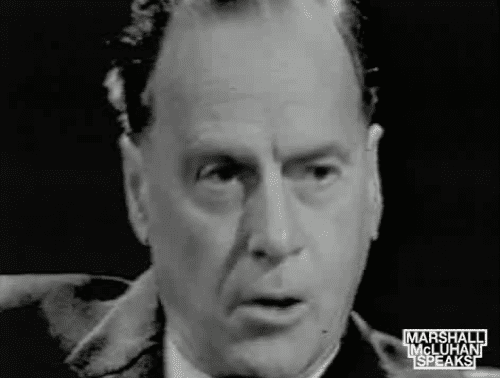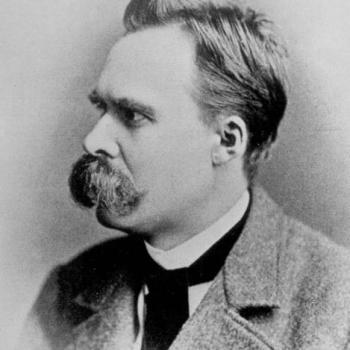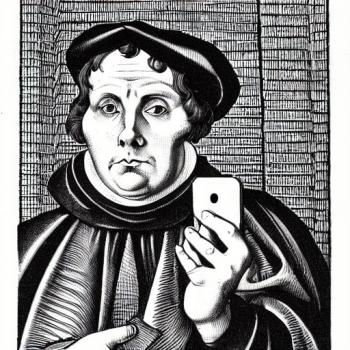 Marshall McLuhan, who basically invented the study of media, became an icon of the 1960’s with his praise of the new information technology and his predictions of the new tribalism that it would make possible. McLuhan arguably predicted the effects of the internet before the internet was invented.
Marshall McLuhan, who basically invented the study of media, became an icon of the 1960’s with his praise of the new information technology and his predictions of the new tribalism that it would make possible. McLuhan arguably predicted the effects of the internet before the internet was invented.
And yet, as Jefferson Pooley reminds us, McLuhan got his start as a conservative cultural critic who, influenced by G. K. Chesterton, became a traditionalist Catholic who opposed the reforms of Vatican II.
I would argue that his criticism of the printing press and the thought-forms it made possible is connected to his opposition to the Reformation, which he called “the greatest cultural disaster in the history of civilization.” And that his “global village” that he thought the new electronic media would usher in represents his yearning for Medieval Catholicism, with its visual images and its corporate unity.
Read Pooley’s piece on McLuhan, started after the jump.
From Jefferson Pooley, How to Become a Famous Media Scholar: The Case of Marshall McLuhan – Los Angeles Review of Books:
WHEN MARSHALL MCLUHAN published Understanding Media in 1964, the Cambridge-trained literary scholar was not well known, even inside the academy. By 1967, he was on the covers of Newsweek and the Saturday Review, and the subject of an hourlong NBC documentary, all in the same month. Over three manic years, McLuhan had shot from scholarly obscurity to klieg-lit fame. . . .
The paradox of McLuhan is that the Panglossian media sage celebrated by PR flacks and radical counterculturalists like Abbie Hoffman began his career as a cranky enemy of modernity. The same man who claimed, in 1963, that our era “is the greatest in human history” had been decrying, only a few years before, an age “when a triumphant technology croons the sickly boasts of the advertising man, when the great vaults and vistas of the human soul are obscured by images of silken glamour, and when it is plain that man lives not by bread alone but by toothpaste also.” Prior to the 1960s, McLuhan was an articulate if unexceptional cultural pessimist, one who deemed his century “totally unfit for human habitation.” Tellingly, he never really abandoned the conservative worldview underpinning his early despair, even as he chatted with rock stars and fantasized about the ultimate, tech-enabled orgasm to Playboy.
[Keep reading. . .]
Photo by CEA+, Marshall McLuhan Speaks, Creative Commons License
 Marshall McLuhan, who basically invented the study of media, became an icon of the 1960’s with his praise of the new information technology and his predictions of the new tribalism that it would make possible. McLuhan arguably predicted the effects of the internet before the internet was invented.
Marshall McLuhan, who basically invented the study of media, became an icon of the 1960’s with his praise of the new information technology and his predictions of the new tribalism that it would make possible. McLuhan arguably predicted the effects of the internet before the internet was invented.















